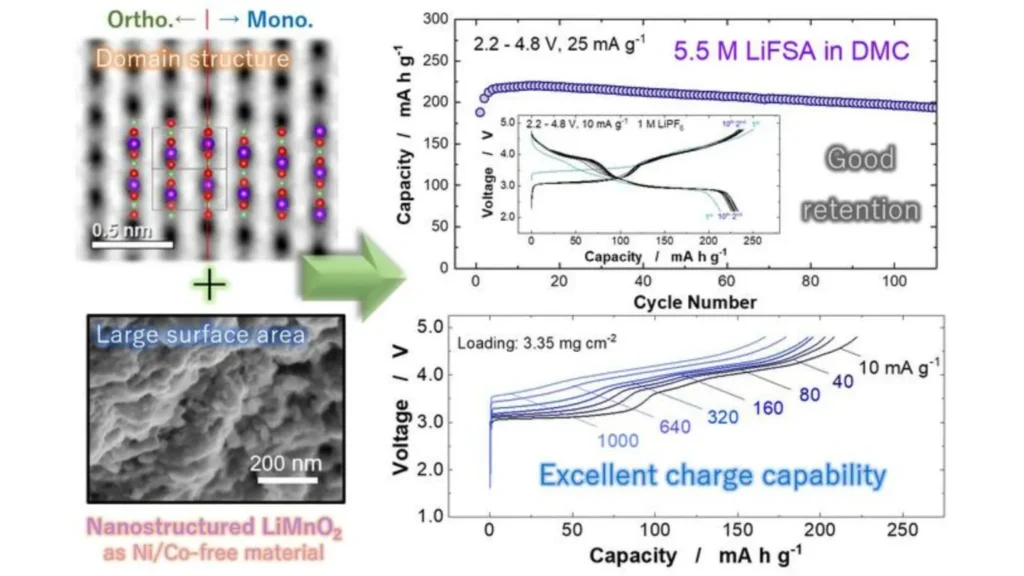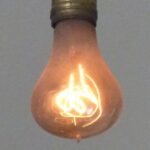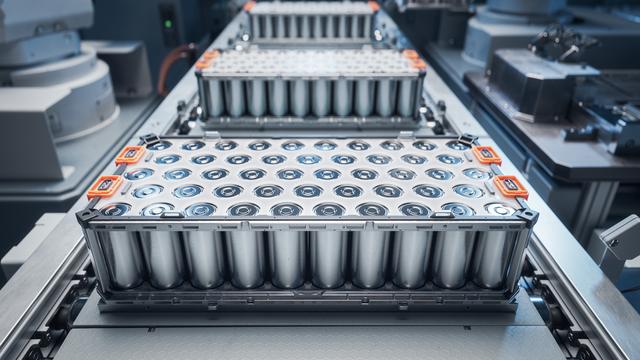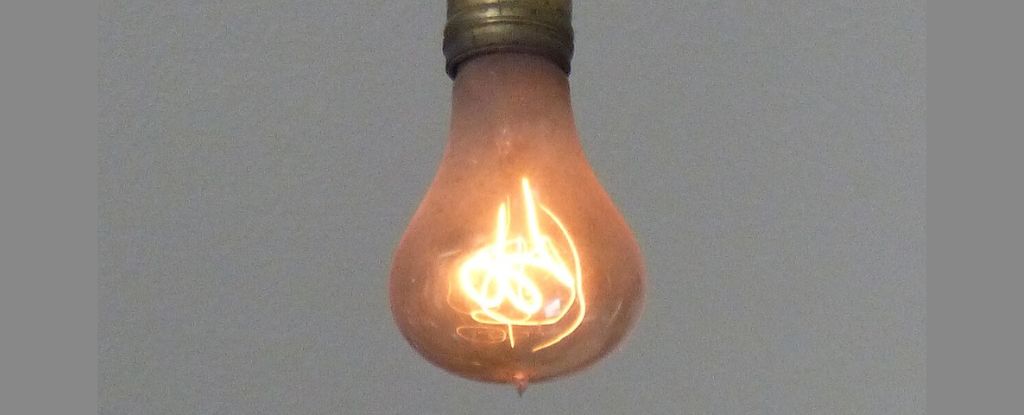Researchers in Japan developed a lithium-ion battery that uses manganese in the anode instead of nickel and cobalt which are typically used.
Manganese is a more sustainable and cheaper alternative to nickel and cobalt which are expensive and rare materials.
Testing showed the manganese-based battery achieved an impressive energy density of 820 watt-hours per kilogram, surpassing nickel-cobalt batteries which reach around 750 Wh/kg.
The manganese electrode uses a monoclinic crystal structure which facilitates a structural transition, improving its performance. It can be directly synthesized via a simple solid-state reaction.

The battery delivered large reversible capacity and good capacity retention over time without the voltage decay sometimes seen in other manganese-based batteries.
The researchers believe this manganese lithium-ion battery could be a competitive and sustainable alternative for electric vehicles given its high energy density and low-cost manganese material.
They are working on further improvements like coatings to address potential manganese dissolution issues and aim to commercialize the technology.
Source: Interesting Engineering









